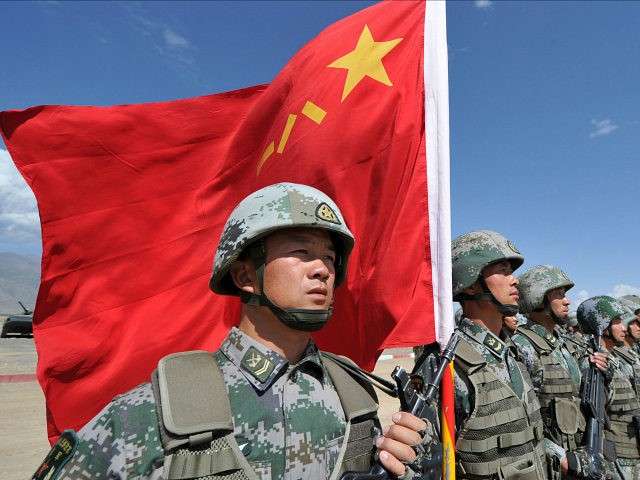The Pentagon’s intelligence agency does not have a “strong grasp” on when China might try to invade Taiwan – an event that could thrust the United States into a military conflict, according to a senior defense official.
The official, who briefed reporters Tuesday on the release of the Defense Intelligence Agency’s first report on China’s military, suggested that it would depend on how confident Chinese military leaders feel in their capabilities to do so.
“I think we still see that there are aspects to their training and their command structure that they still need to work on. And it’s still unclear exactly how such an invasion of it would look, as far as amphibious ships or helicopters or airborne troops,” the official said.
“I think there’s a lot of work that I think that they’re still doing to try to work on those capabilities, and we don’t have a real strong grasp on when they will think that they are confident in that capability,” the official said.
The order to do so could “go today, but I don’t think they’re particularly confident in that capability,” the official added.
The official warned, however, that Taiwan is China’s “most number one priority” in terms of developing and modernizing their forces – particularly their ballistic missile forces.
The official said that in the past five to ten years, China has been developing their intermediate-range ballistic missile capabilities.
The official said:
What we’ve seen … particularly in the past five to ten years, this development of specific capabilities with longer ranges that not coincidentally are things like intermediate-range ballistic missiles with a range that could strike Guam from the Chinese mainland, as part of a broader approach where they have been working out from their own shores.
China and Taiwan have been locked in a decades-long dispute stemming from the Chinese civil war. After losing to Chinese communists, Chinese nationalists fled to Taiwan in 1949 and established a new government on the island that is now a robust democracy.
However, China considers Taiwan a breakaway province, not a separate country, and has increased its campaign to isolate Taiwan internationally, bullying American and international businesses into describing Taiwan as part of China.
The current Chinese government, under Communist Party leader Xi Jinping, has stated its desire to see Taiwan reunified with China by 2049, even if by force. The current Taiwanese government under President Tsai Ing-wen opposes reunification, and the U.S., which maintains a strong informal diplomatic relationship with Taiwan and supplies it with defense equipment, also opposes reunification by force.
Xi recently warned in his first major speech on Taiwan as president that Taiwanese independence was a “dead end” and reiterated his goal to reunify the island with mainland China.
“Reunification is a historical trend and it is the right path. Taiwan independence is an adverse current of history and is a dead end,” Xi said, according to an English-language translation broadcast on state media reported by CNBC. He also warned in remarks aimed at the U.S. that “foreign interference” on Taiwan is “intolerable.”
The senior defense official said although Xi has made it clear that resolving or making progress on resolving the Taiwan situation is a priority for him, his getting rid of term limits gives him more time. Xi is currently 65 years old.
The “biggest concern,” the official said, is that the Chinese military does get to the point where it tells Xi it is confident in its capabilities.
“The biggest concern is that as a lot of these technologies mature, as their reorganization of their military comes into effect, as they become more proficient with these capabilities, our concern is we’ll reach a point where internally, within their decision-making, they will decide that using military force for a regional conflict is something that is more eminent.”

COMMENTS
Please let us know if you're having issues with commenting.